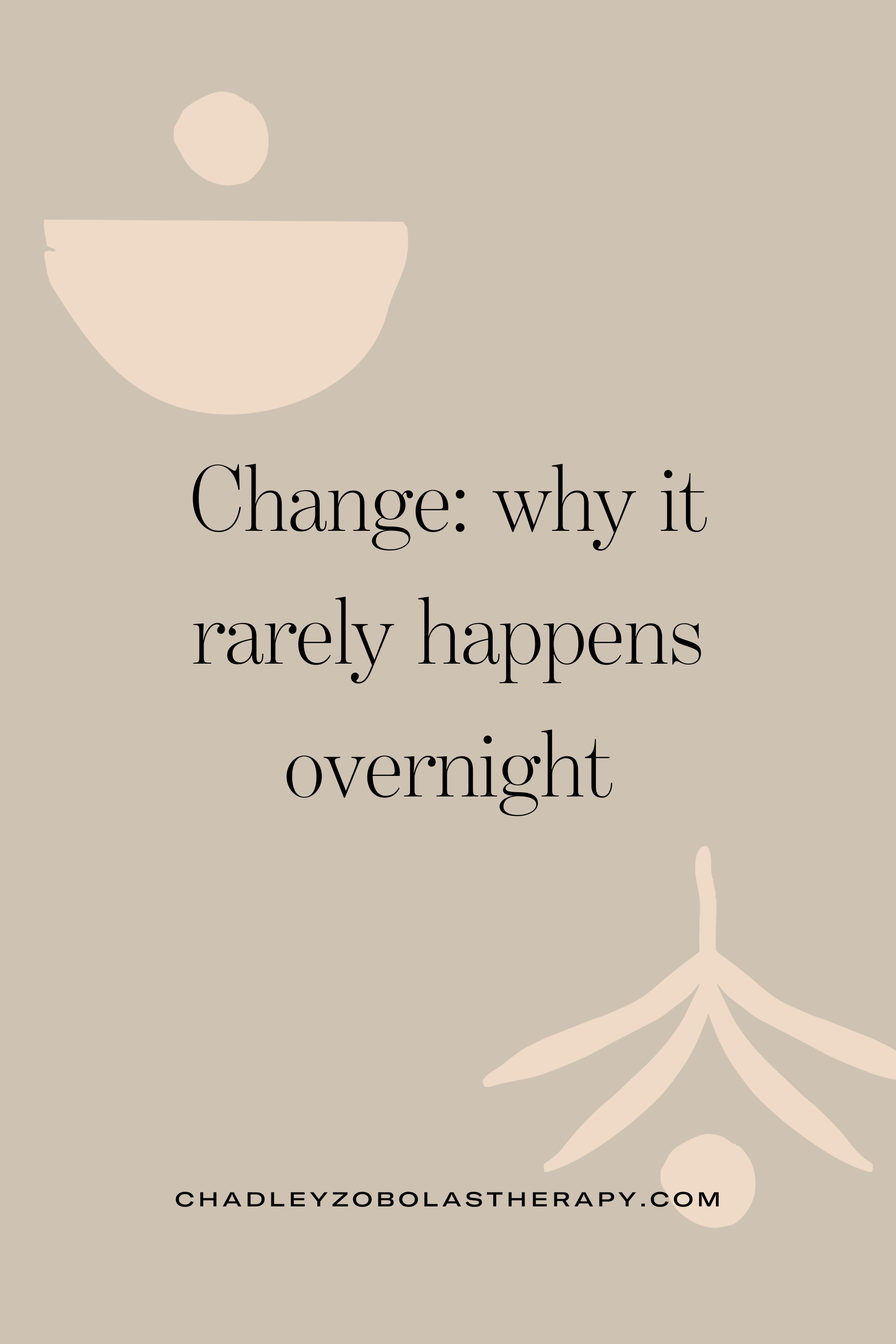Change: why it rarely happens overnight
By Jordan Kurtz, MA, LPCC, Trauma and Relationship Therapist
2023 has arrived and it’s likely that in the past few days, you have overheard or participated in conversations about resolutions- whether you were a willing volunteer or not. Resolutions are declarations of intent that typically reflect a realm of life, behavior, or character trait we desire more or less of. Whether elaborate or simple, resolutions all share a common root: the want (or need) for change.
Change is often discussed in dichotomous terms: today is old me, tomorrow is new me; this current habit is wrong, it soon will be right. While considering outcomes may spark motivation in the short term, we often neglect to remember psychological underpinnings that comprise the most difficult element of change: the process.
We are more likely to commit to, enact, and sustain change if we recognize the degree of readiness for change we currently occupy. How do we know just how ready we are? Enter the Transtheoretical Model of Change (TTM).
Professor and researcher James Prochaska developed the TTM – or Stages of Change – as a response to the myth that change happens overnight. Rather, it is a conscious and unconscious evolving series of stages that reflect our values and internal/external supports for movement at a given time.
What does change look like?
Stage 1: Precontemplation: The Status Quo
At this stage, most of us are not aware of a need for change and/or do not desire one. Whatever homeostasis we have created for ourselves, we seek to maintain. Suggestions for change are dismissed or not paid heed to.
Stage 2: Contemplation: Arrival of the Shoulds
Here, realization dawns that change is required or wanted. Through introspection, natural consequences, or the advice of others, we are exposed to reasons why change should be considered but we do not possess any commitment to action.
Stage 3: Preparation: Building Blocks
Arrival at the preparation stage means we have accepted change should occur and we are beginning the scaffolding process. How to implement the plan, consideration of ways life will change, and evaluation of necessary supports is enacted.
Stage 4: Action: Ready, Set, Go!
The action stage is relatively self-explanatory: here is where change is actively kickstarted as behavior is intentionally modified. Depending upon the degree of change sought after, the action stage may be invisible or visible to others. One study conducted by Prochaska indicated that only 20% of individuals are prepared to take action toward change at any given time.
Stage 5: Maintenance and Relapse: The Two that Tango
As change takes hold, revisions to initial plans may be warranted, especially if relapse takes place. Prochaska purposefully wove relapse into the model to exemplify the rarity of change solidifying itself immediately. It is hard for a reason! As we accrue more momentum with our goals, identify the correct supports needed, and grant self-compassion for relapse, we develop the pathway for maintenance. New behavior or patterns overtake the old, and we reap the benefits of our efforts.
Why does this matter?
Consider your own resolutions for the year or previous changes you have tried to instill without success. Where do they fit within this model? Placing our goals within this framework provides pillars of context, and encourages reflection on what environmental supports, people, stressors and circumstances are likely to foster change most.
Explore this short video to see the Stages of Change paired with real life behaviors.
You don’t have to be in it alone!
Counselors at CZ Therapy group recognize the complexity of change and always meet you where you are at. Throughout the therapeutic journey, our therapists will walk alongside you as you navigate each stage of the cycle with compassion, support, and patience. Reach out to us to schedule a free consult with a therapist on our team!
Meet the Writer
Jordan (she/her) is a trauma and relationship therapist at CZTG who focuses on therapy for grief, trauma, adolescence, and couples. Jordan is authentic, warm, and affirming of her clients’ identities and experiences.
Interested in exploring what it would be like to start therapy and resonate with Jordan’s approach? Reach out for a free consult with Jordan to learn more about her work as a trauma therapist and relationship counselor in Denver, Colorado.




